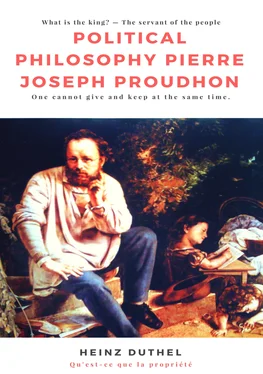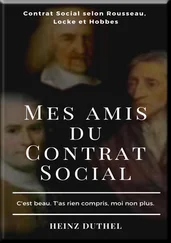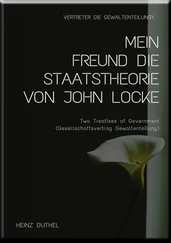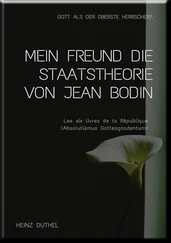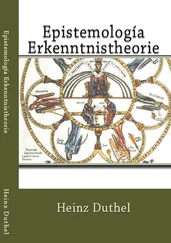But none of these titles confer upon me the right of property. For, if I attempt to base it upon occupancy, society can reply, "I am the original occupant." If I appeal to my labour, it will say, "It is only on that condition that you possess." If I speak of agreements, it will respond, "These agreements establish only your right of use." Such, however, are the only titles which proprietors advance. They never have been able to discover any others. Indeed, every right — it is Pothier who says it — supposes a producing cause in the person who enjoys it; but in man who lives and dies, in this son of earth who passes away like a shadow, there exists, with respect to external things, only titles of possession, not one title of property. Why, then, has society recognized a right injurious to itself, where there is no producing cause? Why, in according possession, has it also conceded property? Why has the law sanctioned this abuse of power?
The German Ancillon replies thus: —
"Some philosophers pretend that man, in employing his forces upon a natural object, — say a field or a tree, — acquire a right only to the improvements which he makes, to the form which he gives to the object, not to the object itself. Useless distinction! If the form could be separated from the object, perhaps there would be room for question; but as this is almost always impossible, the application of man's strength to the different parts of the visible world is the foundation of the right of property, the primary origin of riches."
Vain pretext! If the form cannot be separated from the object, nor property from possession, possession must be shared; in any case, society reserves the right to fix the conditions of property. Let us suppose that an appropriated farm yields a gross income of ten thousand francs; and, as very seldom happens, that this farm cannot be divided. Let us suppose farther that, by economical calculation, the annual expenses of a family are three thousand francs: the possessor of this farm should be obliged to guard his reputation as a good father of a family, by paying to society ten thousand francs, — less the total costs of cultivation, and the three thousand francs required for the maintenance of his family. This payment is not rent, it is an indemnity.
What sort of justice is it, then, which makes such laws as this: —
"Whereas, since labour so changes the form of a thing that the form and substance cannot be separated without destroying the thing itself, either society must be disinherited, or the labourer must lose the fruit of his labour; and
"Whereas, in every other case, property in raw material would give a title to added improvements, minus their cost; and whereas, in this instance, property in improvements ought to give a title to the principal;
"Therefore, the right of appropriation by labour shall never be admitted against individuals, but only against society."
In such a way do legislators always reason in regard to property?
The law is intended to protect men's mutual rights, — that is, the rights of each against each, and each against all; and, as if a proportion could exist with less than four terms, the law-makers always disregard the latter. As long as man is opposed to man, property offsets property, and the two forces balance each other; as soon as man is isolated, that is, opposed to the society which he himself represents, jurisprudence is at fault: Themis has lost one scale of her balance.
Listen to the professor of Rennes, the learned Toullier: —
"How could this claim, made valid by occupation, become stable and permanent property, which might continue to stand, and which might be reclaimed after the first occupant had relinquished possession?
"Agriculture was a natural consequence of the multiplication of the human race, and agriculture, in its turn, favours population, and necessitates the establishment of permanent property; for who would take the trouble to plough and so, if he were not certain that he would reap?"
To satisfy the husbandman, it was sufficient to guarantee him possession of his crop; admit even that he should have been protected in his right of occupation of land, as long as he remained its cultivator. That was all that he had a right to expect; that was all that the advance of civilization demanded. But property, property! The right of escheat over lands which one neither occupies nor cultivates, — who had authority to grant it? who pretended to have it?
"Agriculture alone was not sufficient to establish permanent property; positive laws were needed, and magistrates to execute them; in a word, the civil State was needed.
"The multiplication of the human race had rendered agriculture necessary; the need of securing to the cultivator the fruit of his labour made permanent property necessary, and also laws for its protection. So we are indebted to property for the creation of the civil State."
Yes, of our civil State, as you have made it; a State which, at first, was despotism, then monarchy, then aristocracy, today democracy, and always tyranny.
"Without the ties of property it never would have been possible to subordinate men to the wholesome yoke of the law; and without permanent property the earth would have remained a vast forest. Let us admit, then, with the most careful writers, that if transient property, or the right of preference resulting from occupation, existed prior to the establishment of civil society, permanent property, as we know it to-day, is the work of civil law. It is the civil law which holds that, when once acquired, property can be lost only by the action of the proprietor, and that it exists even after the proprietor has relinquished possession of the thing, and it has fallen into the hands of a third party.
"Thus property and possession, which originally were confounded, became through the civil law two distinct and independent things; two things which, in the language of the law, have nothing whatever in common. In this we see what a wonderful change has been effected in property, and to what an extent Nature has been altered by the civil laws."
Thus the law, in establishing property, has not been the expression of a psychological fact, the development of a natural law, the application of a moral principle. It has literally created a right outside of its own province. It has realized an abstraction, a metaphor, a fiction; and that without deigning to look at the consequences, without considering the disadvantages, without inquiring whether it was right or wrong.
It has sanctioned selfishness; it has indorsed monstrous pretensions; it has received with favour impious vows, as if it were able to fill up a bottomless pit, and to satiate hell! Blind law; the law of the ignorant man; a law which is not a law; the voice of discord, deceit, and blood! This it is which, continually revived, reinstated, rejuvenated, restored, re- enforced — as the palladium of society — has troubled the consciences of the people, has obscured the minds of the masters, and has induced all the catastrophes which have befallen nations.
This it is which Christianity has condemned, but which its ignorant ministers deify; who have as little desire to study Nature and man, as ability to read their Scriptures.
But, indeed, what guide did the law follow in creating the domain of property? What principle directed it? What was its standard?
Would you believe it? It was equality.
Agriculture was the foundation of territorial possession, and the original cause of property. It was of no use to secure to the farmer the fruit of his labour, unless the means of production were at the same time secured to him. To fortify the weak against the invasion of the strong, to suppress spoliation and fraud, the necessity was felt of establishing between possessors permanent lines of division, insuperable obstacles. Every year saw the people multiply, and the cupidity of the husbandman increase: it was thought best to put a bridle on ambition by setting boundaries which ambition would in vain attempt to overstep. Thus the soil came to be appropriated through need of the equality which is essential to public security and peaceable possession. Undoubtedly the division was never geographically equal; a multitude of rights, some founded in Nature, but wrongly interpreted and still more wrongly applied, inheritance, gift, and exchange; others, like the privileges of birth and position, the illegitimate creations of ignorance and brute force, — all operated to prevent absolute equality. But, nevertheless, the principle remained the same: equality had sanctioned possession; equality sanctioned property.
Читать дальше
